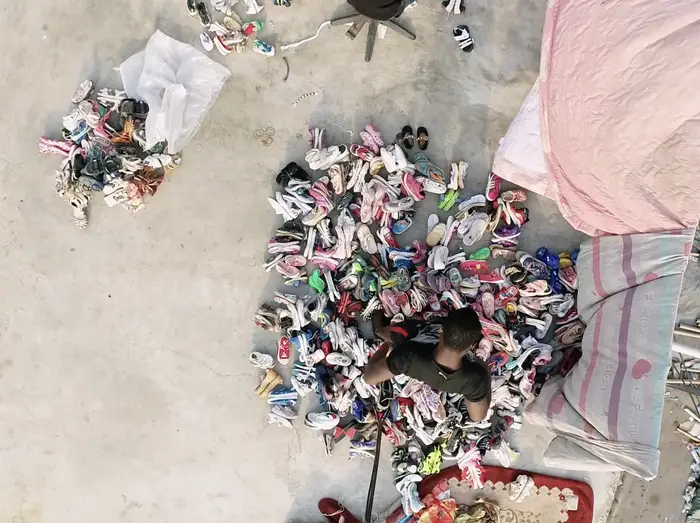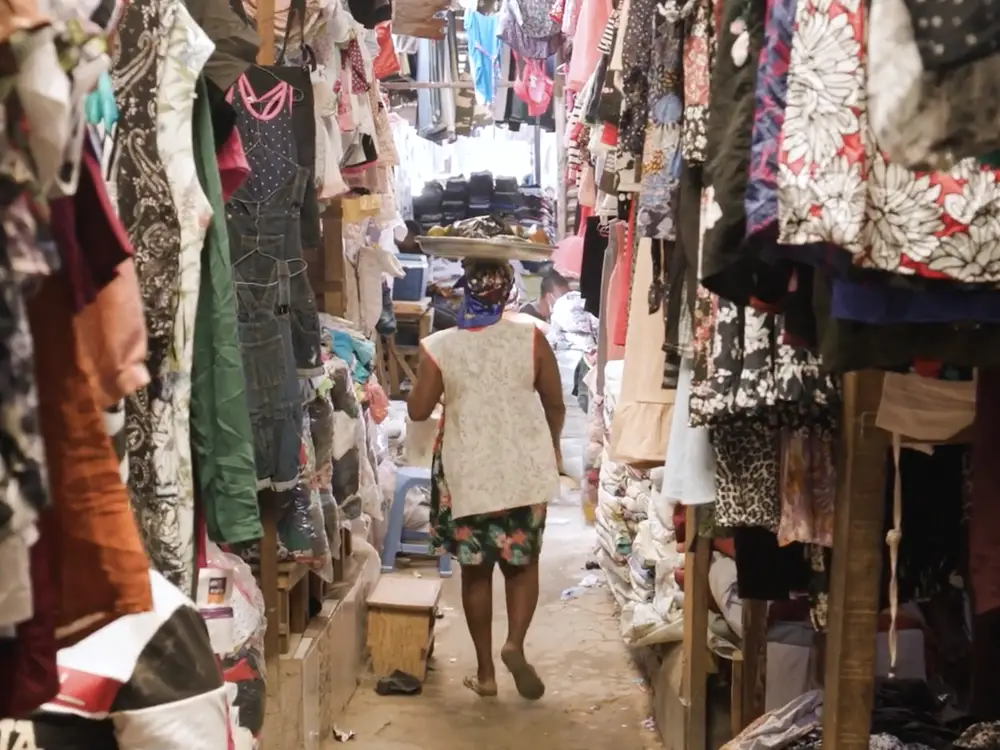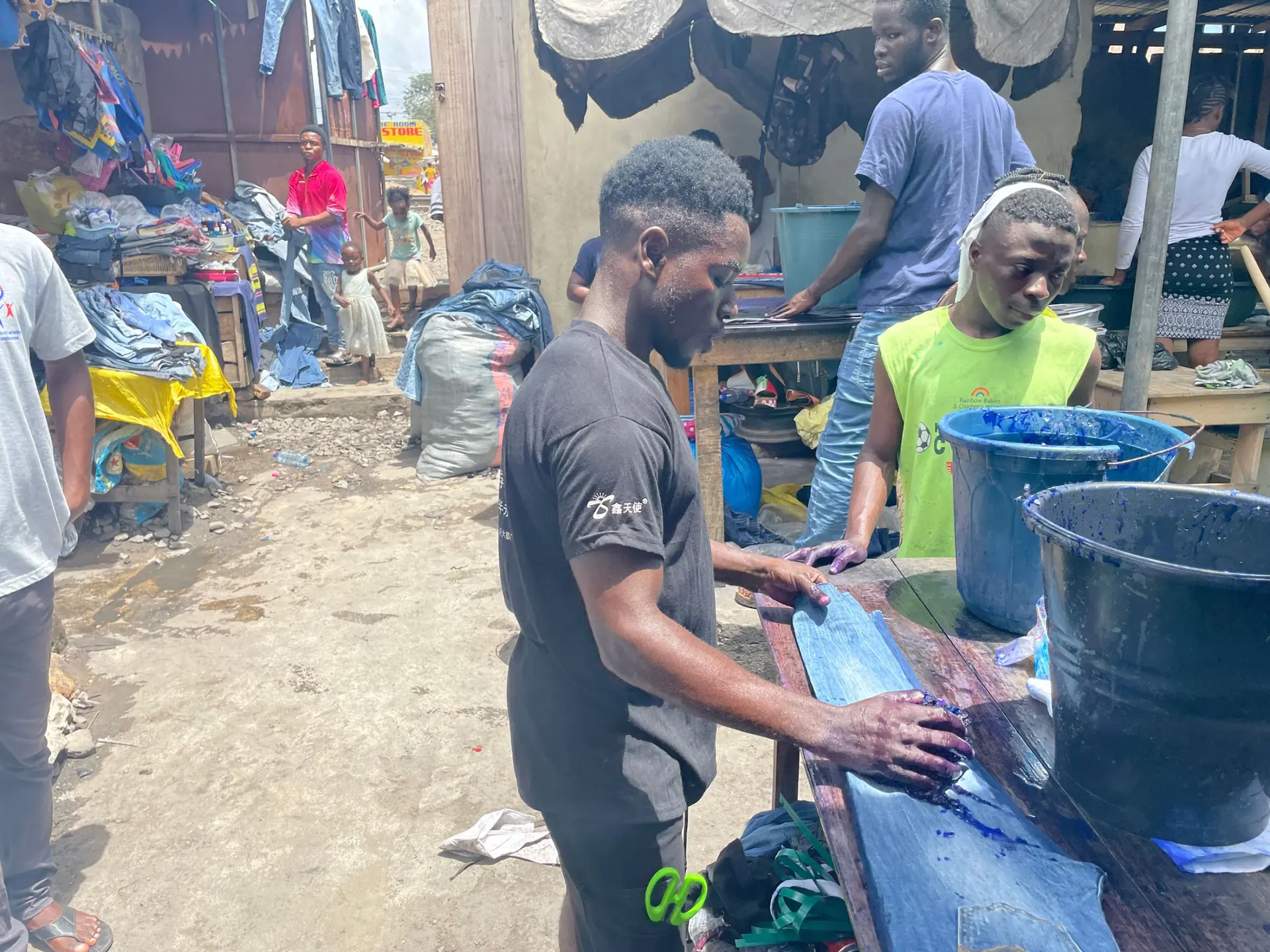They say one man’s trash is another man’s treasure and nowhere is that more true than on the African continent. Whether you’re sourcing from the well-curated albeit overpriced vintage shops of Cape Town or grafting in Joburg’s piles, it’s difficult to imagine our culture without second-hand clothing. With leading designers like Thebe Magugu capitalising on the accessibility of used clothing from European shores, it’s even hard to imagine Africa’s future without these garbs. But it’s worth considering the cost of this culture of hand-me-downs.
The prevalence of second-hand clothing in African markets stems from global trade dynamics and the fast fashion trend. While the fashion industry has recently faced criticism for its environmental impact, including regarding the disposal of second-hand clothing in Africa, this trade continues to be perceived as charitable. But the truth is, because of the sheer amount of unwanted fashion items coming from the West, many second-hand items end up in landfills or water bodies, releasing harmful chemicals and polluting the environment.
Ghana alone receives about 15 million items of used clothing every week, a considerable portion of which ends up in landfills. This is particularly evident in markets like Kantamanto. Over 30,000 people are involved in the trade of used clothing at this market, but the decline in clothing quality and rising prices often leave vendors in debt. The influx of cheap clothing overwhelms Ghana’s infrastructure and waste management issues lead to overflowing landfills, clogged drains, and pollution of coastlines, affecting over 2 million people dependent on fishing livelihoods.


Simply banning the shipment of old clothes to Africa won’t do. At this point, it’s so bad that Western clothing manufacturers owe Africans ecological reparations, but we all know that would be unlikely. Policy interventions, such as tariffs and regulations, will reduce the influx of secondhand garments. Recently, researchers conducted a comprehensive study in the Ashanti and Greater Accra regions. They collected data from 135 consumers on the purchase and disposal of second-hand clothing through structured online questionnaires.
Additionally, a new wave of technological innovations is emerging, spearheaded by brands and startups. These efforts aim to minimize environmental impact while meeting consumer demand through advanced recycling technologies and circular fashion initiatives. These innovations hold the potential to transform the fashion industry, ushering in a new era of sustainability and responsible consumption.

Dead White Man’s Clothes (2016), a multimedia research project led by Liz Ricketts and Branson Skinner from The OR Foundation, focuses on the secondhand clothing trade in Accra. Ricketts and Skinner’s project examines the environmental, social, and economic effects of Ghana’s used clothing industry, focusing on the Kantamanto Market. Through interviews and documentation, they advocate for sustainability, emphasising the need for fibre-level textile recycling and a circular economy benefiting Ghanaian citizens.
There is an urgent need for change in waste management practices, and the fashion industry must be held accountable for its impact on Africa’s waterways and environment. Education and awareness initiatives are crucial and informing global consumers about the environmental impact of their purchasing decisions. As Africans’ we have to discard the misconception that these imports are somehow good for us and insist that the West move towards a more sustainable and environmentally responsible fashion industry and it starts with us.



















































